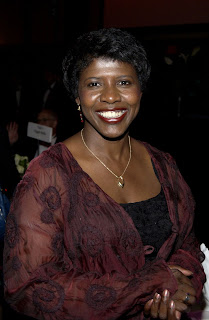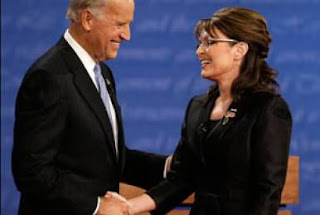
Writer, author, TV Newscaster, host....this woman did it all. Born and raised in one of the United States’ hubs for journalism, Queens, New York, Gwen Ifill left a great mark on the journalism industry. Her passion for the truth, her integrity as a person, and all the trials and tribulations she went through during her career, shaped her into the person and journalist she ultimately became known to be.
As one of five children, in 1955, Gwen Ifill grew up in a very vibrant environment. Although her family’s living conditions were not the best, she used what she encountered during that time to fuel her writing endeavors. Article by article, Ifill would document her thoughts, feelings, and concerns about the Urban Housing crisis that occurred during that time.
Some years later, Ifill attended Simmons College in Boston Massachusetts to study Communications. During her college years, she was an extremely active member of her campus. Ifill was very involved with student life through taking part in various Black student clubs as well as publication and writing clubs.All of her efforts in college allowed her to get an internship with the Boston-Herald American, which is the same press company that gave Ifill her first job.
Through a serious of interesting circumstances, Ifill was able to work with the Boston-Herald American for a while until she transferred over to the Baltimore Evening Sun in 1981. Three years later, Ms. Ifill got her big break at the Washington Post and stayed there for about six years.
When the Washington Post then began to limit the extent of Ifill’s coverage in D.C., she knew it was time for a change. And by the time 1991 rolled around, Ms. Ifill found herself the White House correspondent with the New York Times. There she covered the early years of President Bill Clinton’s administration.
Four years later, Ifill had her TV debut as the congressional correspondent for NBC News. There she was able to build upon her reputable reputation for quality reporting. "Gwen was a standard bearer for courage, fairness and integrity in an industry going through seismic change," Sara Just, PBS News Hour's executive producer, said in a statement.By the end of the 20th century, Gwen Ifill was making historic moves in the world of journalism. She became the first African American woman to host national political talk show. “Washington Week,” as it was called, gave Ifill the platform to reach many more people with her discussions and coverage of various presidential campaigns through PBS’s network.
Coupled with her hosting duties, Ms. Ifill also held the role of senior correspondent on PBS’s NewsHour alongside Jim Lehrer in 1999. The atmosphere at PBS helped to continue to cultivate Ifill’s passion for media truth and accuracy. Little did she know that she was building her top-tier reputation as a trustworthy and hardworking journalist.
The twenty-first century came with more groundbreaking opportunities for Gwen Ifill as she continued to make historic strides in political journalism. In 2004, the Dick Cheney and John Edwards vice presidential debate was moderated by Ms. Ifill and brought in over forty million viewers.When asked about her experience she said, “I always say if I had a chance to do it over again the questions would be different for each of them. At the time, I was trying to figure out, there's only one vice presidential debate, how do I get them to talk about something that's off their topics, something they haven't rehearsed for...”
Ifill was clear about her intentions of getting the real and raw responses from the people she was talking and working with in order to attain the best outcome for the media.
Four years later, Ms. Ifill was able to do the same thing for a second vice presidential debate, this time between Joe Biden and Sarah Palin. As someone who valued truthful responses to the public, this debate was frustrating for Ifill as the candidates gave insufficient answers to her questions. The Guardian quoted her after the debate saying, “One of the most gratifying responses afterward came from viewers who knew when questions weren't answered.”The Joe Biden and Sarah Palin debate served as a platform where Gwen Ifill was able to express herself individually as a reporter and then receive immediate feedback from the public as to support her as a journalist and the values she put forth for her craft.
Ms. Ifill’s career culminated in 2013 with a co-anchoring position for PBS’s NewsHour with journalist Judy Woodruff. Both of these women made history as becoming the first women to host a news network program. Through their segment they displayed their expertise while covering about fifteen presidential elections.
Unfortunately, at the age of 61, Gwen Ifill’s career was cut short due to her battle with cancer, and she passed away November 14th in 2016.
Her memory lives on through her hard work and example. As member of the black community and as a woman, Ms. Ifill was a pioneer in the journalism world. She was a writer, host, moderator, newscaster and so much more and valued the true nature of journalism and broadcasting. Her efforts, worth ethic, and integrity will never go unnoticed as future journalists traverse the same paths she did.









